
| GATE | HOME | PASSPORT | DIARY | CYBORG FB | artKIVE/TUMBLR | GAs |
| IMAGINATION CHALLENGE NUMERO UNO |
| IMAGINATION CHALLENGE NUMERO DOS |
ROBOTIC EROTIC ELECTRIC DIARY
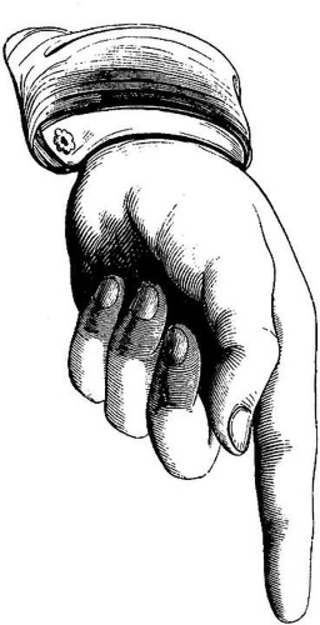 |
 |
 |
    |
TUESDAY | January 21, 2014   |
THURSDAY | January 23,
2014 Our amazing laboratory for invention, imagination, discovery, and experimentation, Peterson Gym 153, is a converted basketball court--it still even looks like a basketball court and that's a good thing as if you are any bit as good a literature/film/cultural studies student as the Aztecs are a basketball player, you are going to have an amazing semester! It's the first day of class. What will we do? 1st? Embrace our inner-cyborg! Out our status as polymorphous, technosexual organisms! What follows will be an introduction to the premise of our shared adventure including: a discussion concerning the nature of fiction (and its relation to robots); a lecture concerning the relationship between the erotic and exotic; definitions of the televisual; music videos; shouting; outrage over laptop/cell phone policy; outline of required texts (books, films, artbooks, etc); and last, but not least, an introduction to roboticEROTIC hermeneutic toolkit™ terms. Anything else? The best students in the room may have already read Charlotte Perkins Gilman's "The Yellow Wallpaper"--a moving, disturbing meditation on female objectification and rebellion we will focus on next Tuesday! 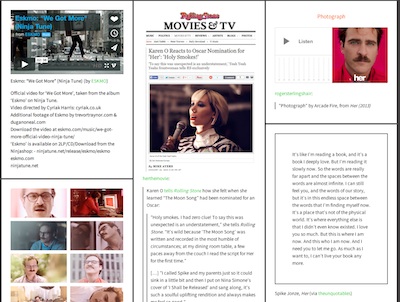 |
   |
TUESDAY | January 28,
2014 Enter our posh, transmogrified gym having completed (and maybe even re-read) Perkins' "The Yellow Wallpaper." In class we will wrap our eyes and brains around the singular prose stylings of Charlotte Perkins Gilman--as you read, be sure to take notes and don't come to class without marking, underscoring, or otherwise noting passages that you view to be 'key', phrases, sentences, statements that seem to cry out for close analysis. As you read, you may find yourself saying, "Where are the robots" but you need to remember that robots are both real and metaphorical. If someone were to say to you, "quit acting like a robot" you would NOT take it as a compliment. What are the associations you have with robots, what are their attributes, their tendencies, their "stereotypes."  If you have time,
enter the room today having read as much of METAMORPHOSIS by Franz
Kafka as you can stand and print this out (below) and bring it to
class filled out with thoughtful responses! If you have time,
enter the room today having read as much of METAMORPHOSIS by Franz
Kafka as you can stand and print this out (below) and bring it to
class filled out with thoughtful responses!Also, bring $6 bucks to buy your copy of poetry international!!!  |
THURSDAY | January 30,
2014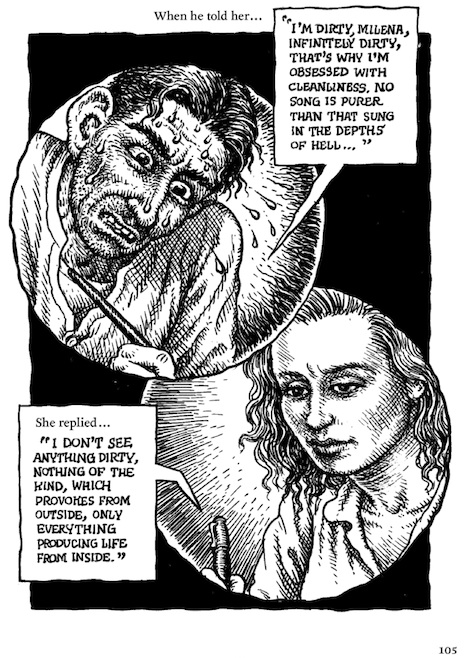 You walk into the room and you have finished reading (carefully and slowly) Franz Kafka's "The Metamorphosis"--don't come to class without your book (you may need it for something). When you are finished reading Kafka's bizarre tale (hint: if you are hung up trying to guess what kind of bug the main character is like some kind of obsessed entomologist, you may have missed the point of the story), the next thing for you to do is to pick up KAFKA, the book by David Mairowitz and illustrated by Robert Crumb (the infamous Robert Crumb!). Read to page 74 in their illustrated biography to SUPPLEMENT our voyage into the singular mind of Franz Kafka. RoboticEROTIC hermeneutic toolware™terms include psyche, psychoanalysis, supplement, & irony. |
REMINDER |
One
of your required TEXTS for the class is the movie, HER, directed by
Spike Jonze--you have until Monday, February 3, 2014 to screen HER at
the theatre and time of your choice--some suggestions for area theatres
appear here. |
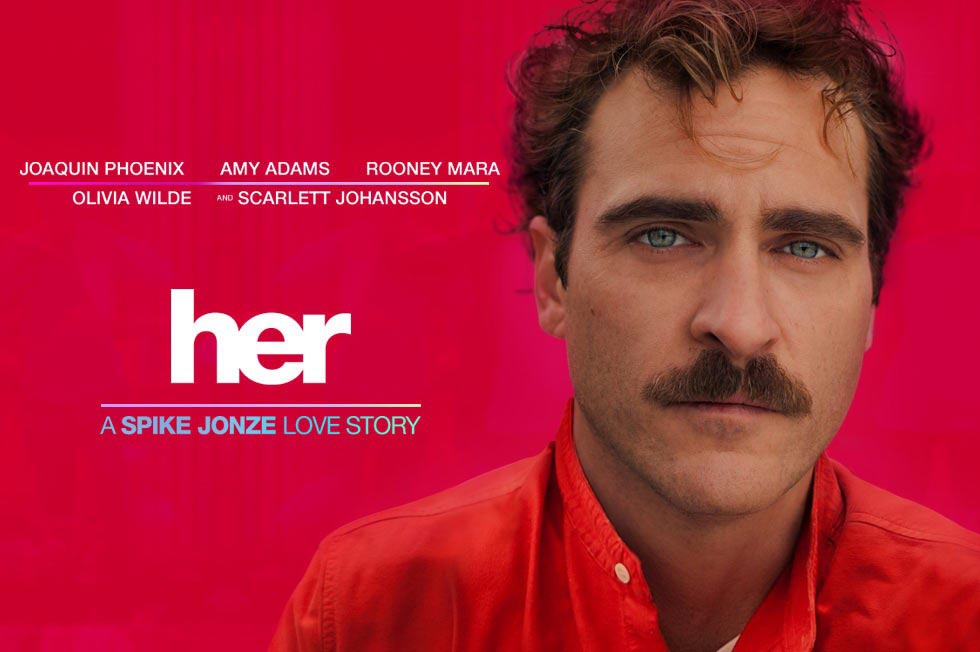 |
   |
TUESDAY | February 4, 2014 Over the weekend, it's a good thing that you went to see HER at the theatre--Spike Jonze's epic futuristic tale forces us to re-examine what it is we think we mean when we say relationship, machine, technology, etc. For class today, you've listened in class last Thursday so you enter our former backetball court having finished Mairowitz & Crumb's KAFKA. You also have brought something with you as your first offering to the gods of writing--a brief paper!!! As your first writing assignment, you have xeroxed the page of the book that is the most complex, compelling, confusing, or provocative. Taped or stapled to that xeroxed reproduction is another page upon which you have typed, proofread, edited, and revised 250 words or so (1 page, double-spaced, typed, Times 12 font) that justifies your selection--A+ efforts will weave in direct quotes pulled either from Kafka's or Mairowitz's writing. The written part of your assignment should have your name, your group name, and a catchy title. Write unto others as you would have them write unto you--in other words, keep the BS out of the effort! If you have trouble finding a way to start your mini-essay, you are free to use this fill-in-the-blanks opening sentence as a Mad-Libs style prompt: Of all the peculiar, delightful, appalling, and disturbing pages to be found in Kafka
by writer David Mairowitz and illustrator Robert Crumb, the one that
grabs (and shakes) the eye most is the one that features _____________,
_____________ and ______________. (p. ___). On this memorable page,
Crumb forces his audience to confront
______________________________________ meanwhile Mairowitz words ask
that we ________________. (continue on your own...)
What should it look like? click to enlarge 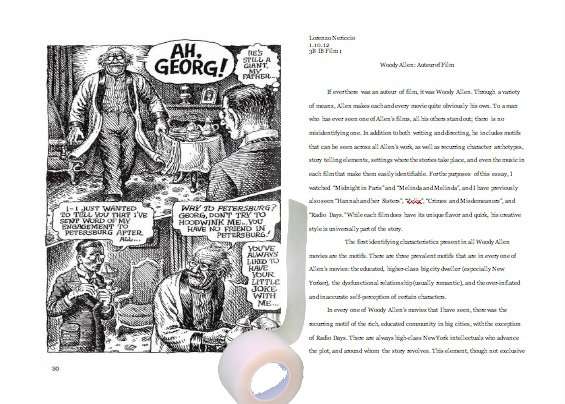 If you want to get ahead, also read the 1st 47 pages of Levins' STEPFORD WIVES. |
THURSDAY | February 6, 2014 In class today, you waltz into the classroom and you have completed Levin's THE STEPFORD WIVES. It is one of the books that embodies the main ideas of Robotic Erotic Electric--Levin's uncanny narrative taps at the root of desire, technology, femininity, masculinity, and more. Don't be surprised if you are asked to do something new during the class--not a day I would forget my book if you get my drift! 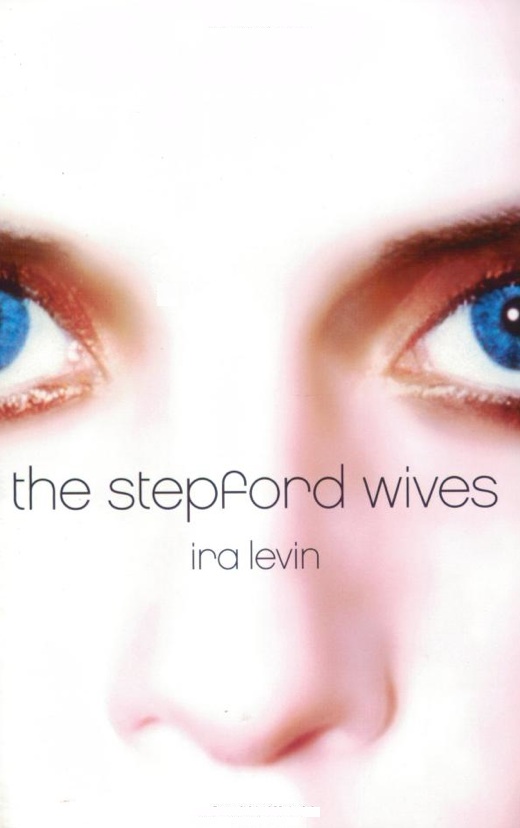 |
   |
TUESDAY | February 11,
2014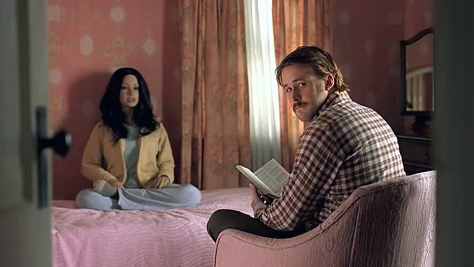 We begin a schizophrenic week Robots, Androids, and Cyborgs! Reeling from our encounter with Levin's STEPFORD allegory we plunge this week into the imagination of writer Nancy Oliver and screenwriter Craig Gillespie as we begin LARS AND THE REAL GIRL in class. In a way this movie represents an inversion of the robot-filled city of Stepford--here we find not men building robotic babe-slaves, instead we find a man, weak, fragile, substituting for the absence of women (including his mother) with a female facsimile, Bianca. While we are screening and discussing LARS in class, out of class you are reading. And it is fine stuff, old school classic literature stuff, HARD TIMES by Charles Dickens. What is the connection? Well for now, that is for YOU to try to figure out--I will say this. Many of the characters you run across in this brilliant little (for Dickens) novel are like the spiritual grandfathers of Dale Diz (Disney) Coba and friends in the magnificent burrough of Stepford. Also, as you read, keep an eye our for the 'ontology' of the factory owners and teachers you meet in the novel. How much should you read? Read Dickens' HARD TIMES pages 39-128. 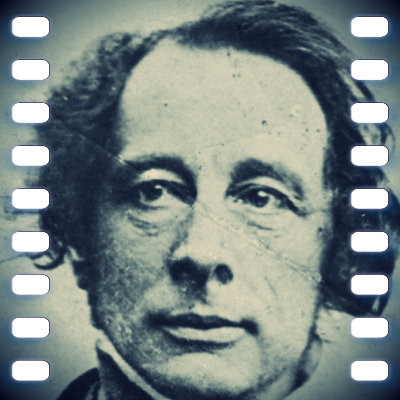 |
THURSDAY | February 13,
2014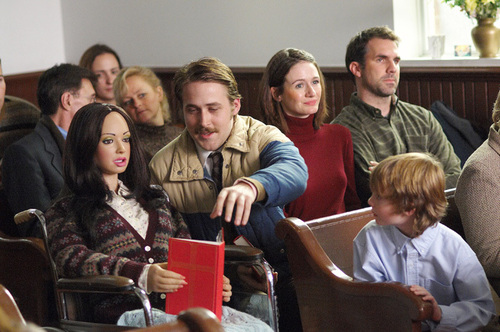 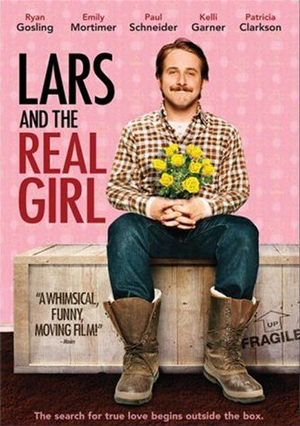 We
complete our screening and discussion of LARS in class today--don't be
afraid to draw connections as you screen the film and take notes in the
dark between LARS and HER--they are there and they are real! As for
reading, continue imbibing the delicious elixir of Dickens' prose pages
129-163. We
complete our screening and discussion of LARS in class today--don't be
afraid to draw connections as you screen the film and take notes in the
dark between LARS and HER--they are there and they are real! As for
reading, continue imbibing the delicious elixir of Dickens' prose pages
129-163.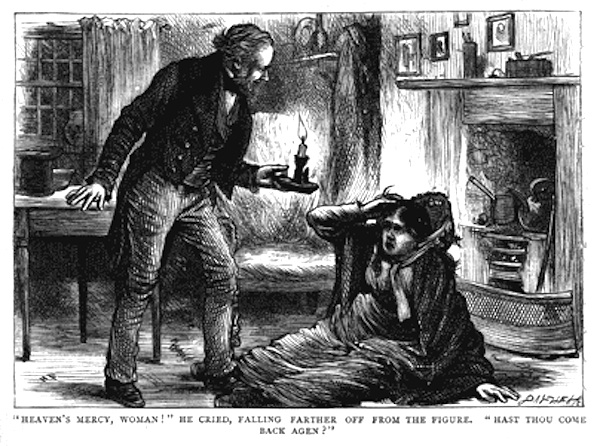 |
   |
TUESDAY | February 18,
2014 Continue reading Dickens pages 164-259--if you wish, also read the Appendices entries listed for Thursday, February 20, 2014, next door there to your right, to get ahead. 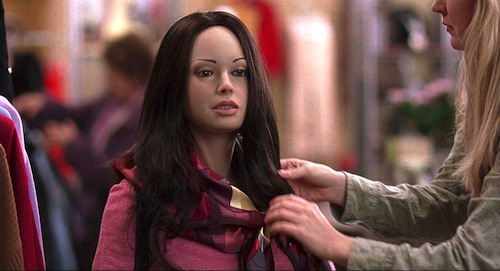 The jumpcut from LARS back in time to HARD TIMES may seem abrupt, lacking, even, in logic, but it is a necessary move. We move from the cinematic present and dive into the literary past and we find a world not so different than our own. The worlds of Gradgrind and Stephen Blackpool are not so strange as they may appear. The opening of the novel might have seem familiar to you from some of your worst nightmare classes in elementary school (or even SDSU). Gradgrind, the obsessive utilitarian pours knowledge into captive, silent, ignorant vessels, aka, the students. The model here is the same as Stephen Blackpool will encounter in the factories where his function as a tool, an object, an employee will systematically empty out his humanity. Dickens, for some reason, wants to draw an analogy betweens schools and factories. We would do well to follow his lead and listen.  |
THURSDAY | February 20,
2014 Enter the seminar hall having completed Dickens's HARD TIMES--also read from the Appendices the following pieces: Carlyle, CHARTISM; Martineau, A MANCHESTER STRIKE; and Brönte, SHIRLEY.  Consider as your read Dicken's meditation on man rendered into object, the human become machine. It is bracing stuff and one of the key revelations to come from Robotic, Erotic, Electric. You may have walked into this class anticipating the fantasy of sci-fi. What literature teaches us, however, even an 'old fart' like Charles Dickens is that stories of processes by which man paralyzes man, man objectifies man, are always already compelling and disturbing.  Today you will also RECEIVE PROMPTS FOR imagination challenge numero uno aka your FIRST ESSAY ASSIGNMENT!!!!!! |
   |
TUESDAY | February 25,
2014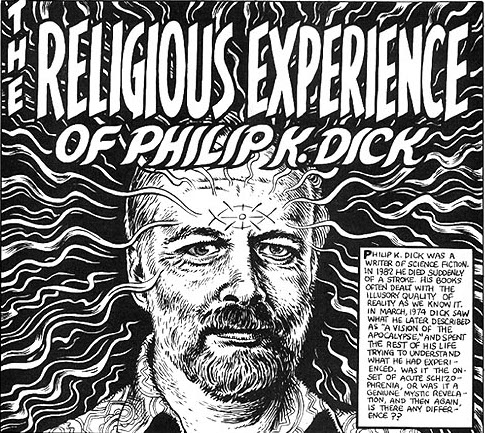 Over the weekend you have been carefully reading the prompts for imagination challenge numero uno. What else? You have plunged into the first 128 pages of Philip K. Dick's DO ANDROIDS DREAM OF ELECTRIC SHEEP, a novel that puts the 'electric' into Robotic Erotic Electric. Dick's fascinating experiment in fiction takes us to the near future, the future imperfect, where Earth is NOT the best place to be, pets are dead, and androids walk amongst us. While Ridley Scott transformed the novel into BLADE RUNNER, this novel is no BLADE RUNNER, and Dick's voracious curiosity regarding the human animal in the future will knock your socks off. 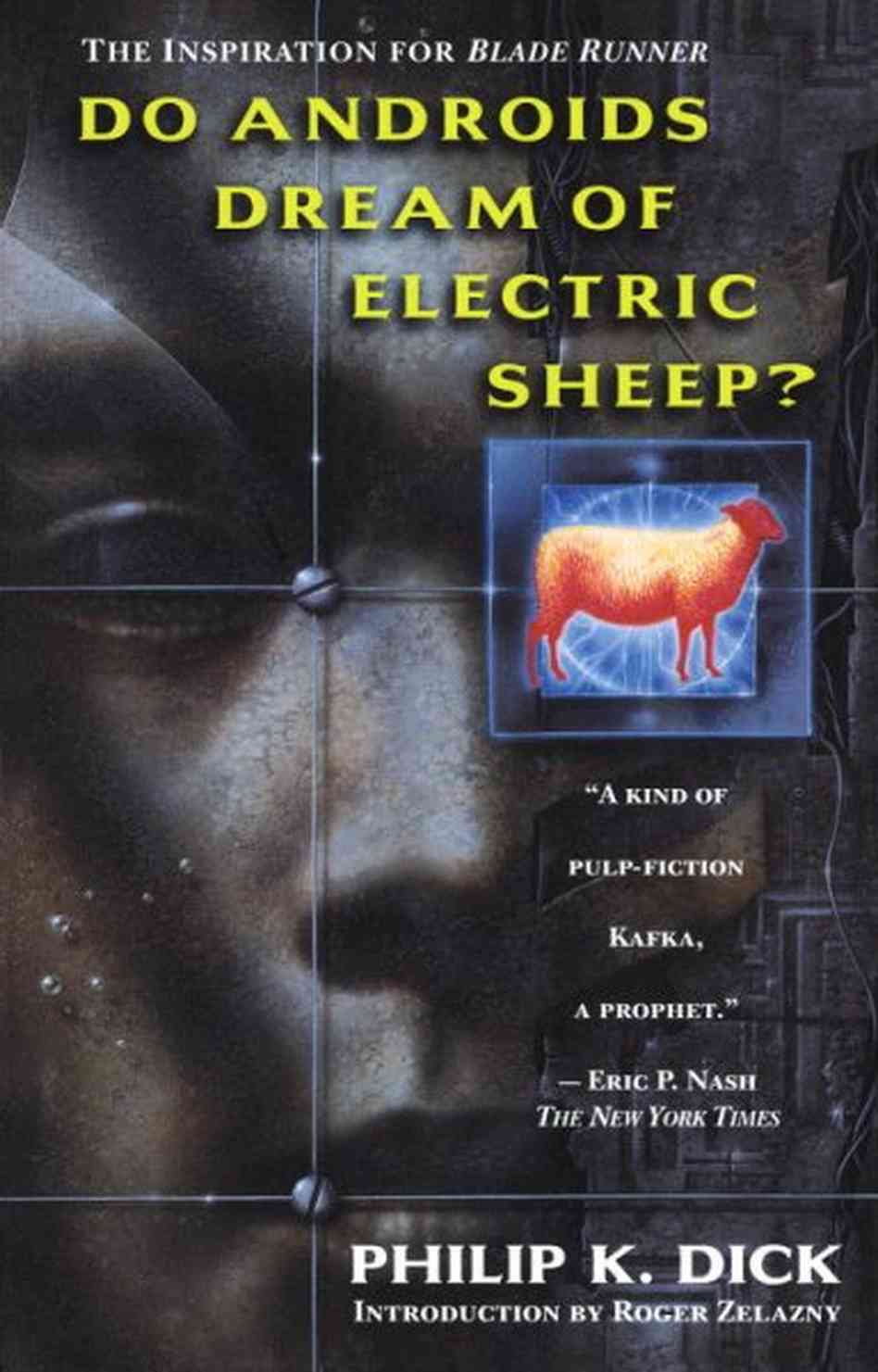 |
THURSDAY | February 27,
2014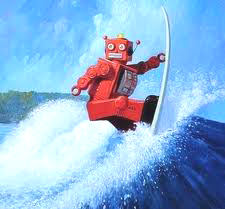 Remember
when you had to go screen HER and you grumbled to yourself "why do I
have to go to a movie and pay for it--it's like having to do an extra
class grumble grumble cuss cuss grumble grumble." Well your grumbles
(and cussing) have been heard and you get to skip class today and catch
up on your reading, or go to the movies, or whatever!!! Enjoy
your vacation--you have earned it by doing extra work. Remember
when you had to go screen HER and you grumbled to yourself "why do I
have to go to a movie and pay for it--it's like having to do an extra
class grumble grumble cuss cuss grumble grumble." Well your grumbles
(and cussing) have been heard and you get to skip class today and catch
up on your reading, or go to the movies, or whatever!!! Enjoy
your vacation--you have earned it by doing extra work. |
    |
TUESDAY | March 4, 2014 You enter the room having finished DO ANDROIDS DREAM OF ELECTRIC SHEEP--the blurb on the cover of your edition is kind of essential for our class no? "A kind of pulp-fiction Kafka, a prophet." Philip K. Dick wants us to immerse ourselves simultaneously in the technological and the spiritual--the role of the novel, of literature, reveals itself as a kind of ontological "holodeck," a world of fabricated appearances wherein we confront the complicated interstitial positionalities that we call "the self"... more on this in lecture and in our discussion. Come to class with a typed page of writing. At the top of the page type out what YOU view to be the most significant passage from Dick's novel. On the rest of the page make the case for why this particular passage deserves to be highlighted as "key" or "essential." On the back of this piece of paper, but NOT TYPED, using your own glorious handwriting, tell me what HER and DO ANDROIDS DREAM OF ELECTRIC SHEEP have in common. Because of this writing assignment, I am delaying the due date for your paper to Friday, March 7 @ noon, delivered to my office, A&L 273--of course you are welcome to turn in your paper next class, in-class if you wish. 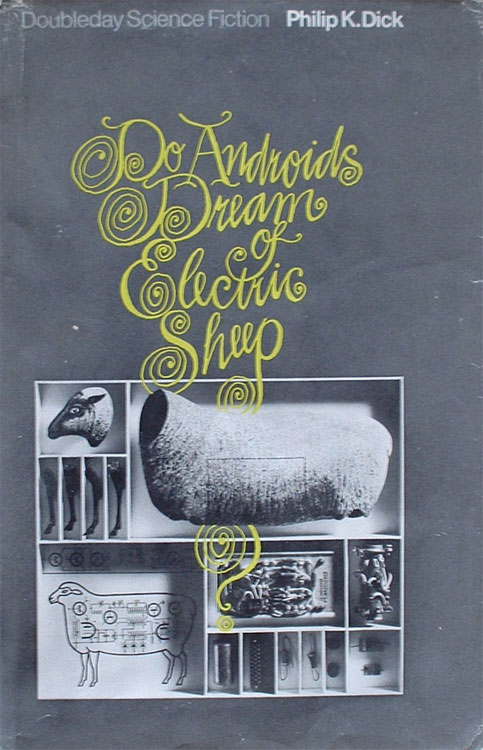 |
THURSDAY | March 6,
2014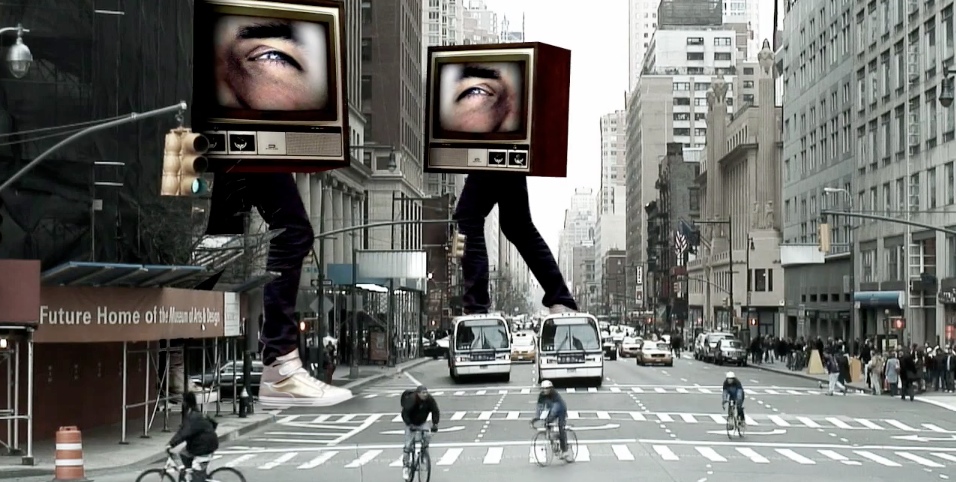  We
begin to submerge our psyche in alternative forms of storytelling,
literature that has been subjected to metamorphosis as it moves from
medium to medium--from ink on the page to bouncing photons on a screen
crashing through our eyes; from paper and glue to sound cascading
through our ears. Come to class having read the first 10 to 20 pages of
Paquet's book on Magritte--as there will be NO QUIZ today, I want you
to read as far as you can for pleasure, not because you have to. Be
sure to select the ONE painting by Magritte that really moves you (for
whatever reason). Magritte will not be
the only order of the day as we will also plunge into video with
screenings of a video by Eskmo, by Arcade Fire, and a peculiar short by
Jon Klassen and Dan Rodrigues. We
begin to submerge our psyche in alternative forms of storytelling,
literature that has been subjected to metamorphosis as it moves from
medium to medium--from ink on the page to bouncing photons on a screen
crashing through our eyes; from paper and glue to sound cascading
through our ears. Come to class having read the first 10 to 20 pages of
Paquet's book on Magritte--as there will be NO QUIZ today, I want you
to read as far as you can for pleasure, not because you have to. Be
sure to select the ONE painting by Magritte that really moves you (for
whatever reason). Magritte will not be
the only order of the day as we will also plunge into video with
screenings of a video by Eskmo, by Arcade Fire, and a peculiar short by
Jon Klassen and Dan Rodrigues.Please remember that Imagination Challenge Numero Uno, aka Essay One is due in class today OR tomorrow outside my office before noon, Arts and Letters 273. Be SURE to put your essay in the correct receptacle according to your assigned GTA. Michael Edmiston [The ROBOTS--ABUGABARA thru FOSTER] Ryan Kelly [The CYBORGS--FRIEDBERG thru MORENO] Stephany Farley [The ANDROIDS--MORGAN thru ZIEGLER] 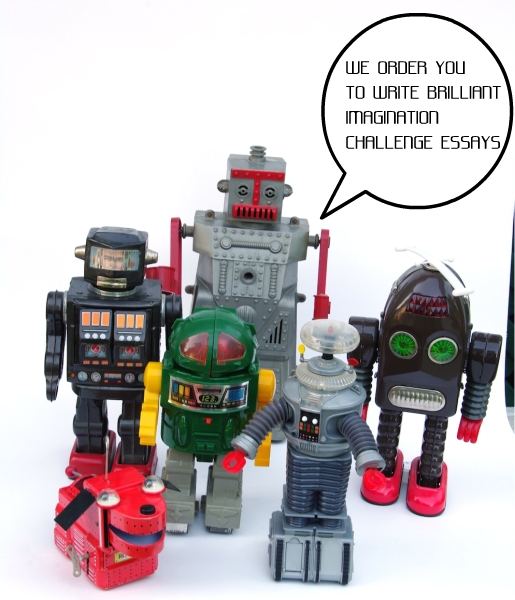 |
| |
||
   |
TUESDAY | March 11,
2014 Read the introduction and Speedy Gonzales chapter of TEX[T]-MEX. "Mexican" Robots!? That's right, we take a turn and move into our own territory, the American Southwest and Northern Mexico, as we dive into the spicy waters of stereotypes. "A stereotype, Bill, is NOT a robot (and it's neither electric nor erotic)" the more skeptical amongst you may intone. I would say wrong, wrong, wrong -- especially about the erotic comment as sexualized stereotypes or stereotypes that speak to sexuality in general are some of the most common forms of the genre. Having carefully read the introduction to Tex[t]-Mex, pages 15 to 30, and then (make TIME) having read the entire Speedy Gonzales chapter, pp. 111-152, you enter our converted basketball court (Go Aztecs!) ready to discuss the animated constructions that are motion picture cartoons. Cinematic automatons, filmed 'robots' of a sort, animated characters move us into the realm of the 'uncanny valley,' a land where facsimiles of the human proxy for the real thing with us getting duped (reshaped / warped) in the process. Be sure to come to class with your book as we MAY have an in-class assignment.  |
THURSDAY | March 13, 2014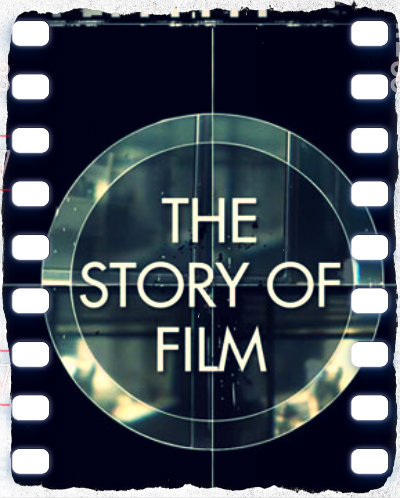 The last three class days have immersed us in alternative forms of literature and storytelling. Where the surreal landscape of Magritte's imagination took us to a world where word and image conspired to change places, a transgendered semantic/semiotic universe where words became images, and pictures aspired to the physiology of language we moved to the world of animated shorts, 'cartoons,' and we found more than we thought we would as these short imaginative mini-movies we associated with 'kids' entertainment' revealed themselves to have access to the darker side of the unconscious. Today we move to the world of documentary film, a cinema-bound universe that translates human action into motion pictures, a radical transformation that impacts on documentarian/director and moviegoer alike. Our guest today in class is documentary director/writer Christie Herring! Herring learned her trade in Documentary Film and Video at Stanford and currently lives in San Francisco where she works in independent film and online media. Class today will be a mix of film, discussion, and exchange as we probe the contours of literature sans ink, of storytelling with a camera! Class robots with film-major friends feel free to bring them to class (visitors are always welcome!) 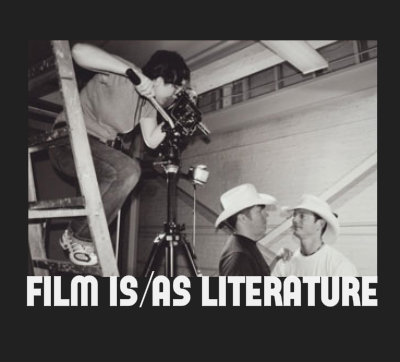 |
   |
TUESDAY | March 18,
2014 KAFKA ON THE SHORE by Haruki Murakami--enter our den of robots, androids, and cyborgs having read to page 128 in the novel, to the end of chapter 14. As you read, be sure to highlight and/or post-it note mark the passages that seem to embody what YOU read to be the point of the novel. Additionally, keep a list by your side and note down what you view to be Murakami's chief thematic obsessions and favorite literary tricks. 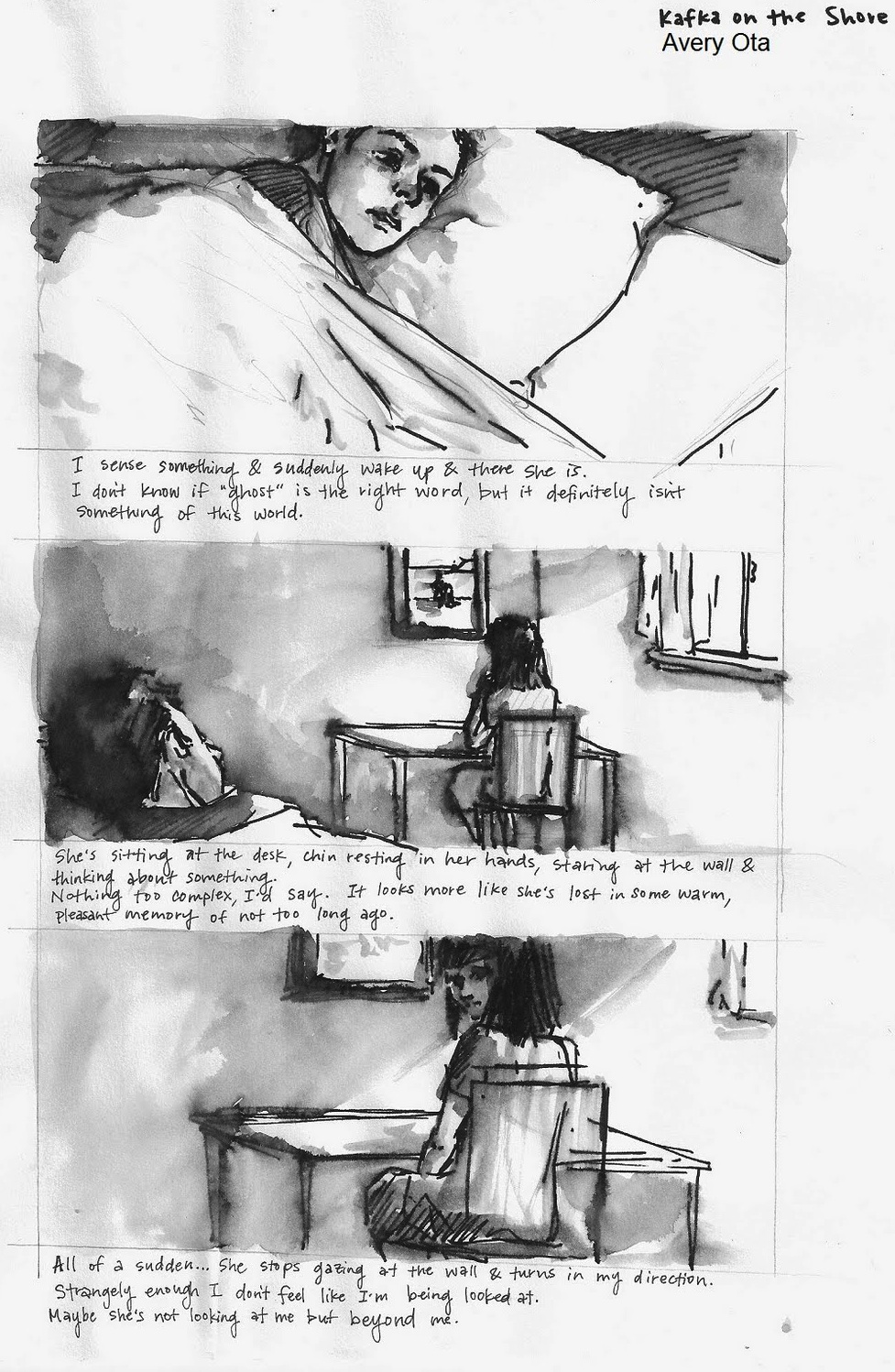 |
THURSDAY | March 20,
2014 KAFKA ON THE SHORE, again--continue your reading to page 205, the end of chapter 21. Be sure to use a dictionary and look up words you don't fully understand. While this slows down your reading in the short term, it accelerates your intellectual development for the long haul. Words are keys capable of opening worlds now closed to you, lessening your dependence on calling new things "weird," and sending you full long in the future to encounters that will mark your life forever. Murakami knows the magic power of words--let him be your guide to worlds unknown and less known 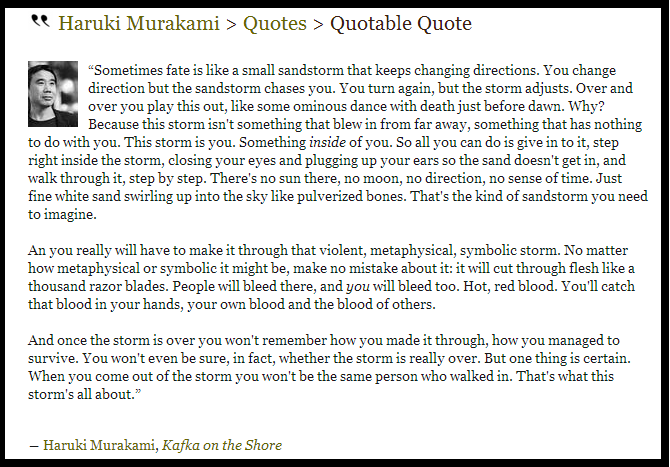 |
   |
TUESDAY | March 25,
2014 KAFKA ON THE SHORE is beside your nightstand this past weekend--and because of your due diligence, focus, and brains, you walk into our classroom having read to page 382, the end of Chapter 40. As you read, consider the evolution of fiction you have witnessed in this class. How have the tools of writers evolved from the time of Dickens and Gilman to the time of Levin and Dick--more recently, can we track changes in the evolution of the novel from THE STEPFORD WIVES and DO ANDROIDS DREAM OF ELECTRIC SHEEP to the present day? How do Murakami's literary tactics mesh with these other writers? How do they differ?  |
THURSDAY | March 27,
2014 Imagination Challenge #1 Results Returned TODAY--get to class early to snag your work!  It is the last class before Spring Break!!! Yes! We enter our peculiar gymnasium having finished KAFKA ON THE SHORE. The novel has Kafka in the title--what is that telling name doing there? Why does Murakami set up an intertextual superconduit between his project and the writings that came from the pen of that very curious fellow from Prague. If Murakami owes Kafka a debt, what is this debt? How are we to constructively imagine the relationship that might obtain between two remarkable storytellers divided by time, language, culture, and vision. Is it possible that writers are a species unto themselves? Receive Imagination Challenge 2. Due Tuesday, April 15, 2014 IN CLASS. |
  |
TUESDAY | April 1,
2014 SPRING BREAK Have a blast! Make new friends! Be careful! Don't date cyborgs... 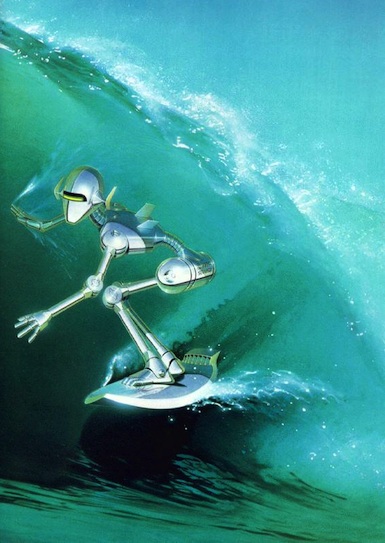 |
THURSDAY | April 3,
2014 SPRING BREAK Take the readings you are behind on (or that you want to get ahead on) with you to the beach!  |
      |
TUESDAY | April 8,
2014 In class today, in lieu of signing in, you will turn in two sheets of paper taped side by side and folded in the middle. One one side, the left, a xerox of what you view to be the most complex, provocative, disturbing, curious, funny, odd, controversial, or _____________ image in the MAGRITTE book. On the other side, the right, a typed 250 word (one page double-spaced, typed) close analysis of the image. DO NOT DO RESEARCH ON THE IMAGE--we want to read YOUR interpretation of Magritte's visual puzzles. OPTIONAL READING: Chapters 3 and 7 from John Berger's WAYS OF SEEING. |
THURSDAY | April 10,
2014 Poetry International Day--What is a literary journal y mucho mas more!!!! It's a festival of literature as poets and writers from the staff of POETRY INTERNATIONAL come in to treat us to a series of presentations and performances focused on poetry today. You are to read (at the very least) the following poems noted on this pdf-handout. YOU ARE ONLY RESPONSIBLE for the poems in the particular issue of Poetry International you purchased at the beginning of the year. Here is a list of those issues--click to enlarge 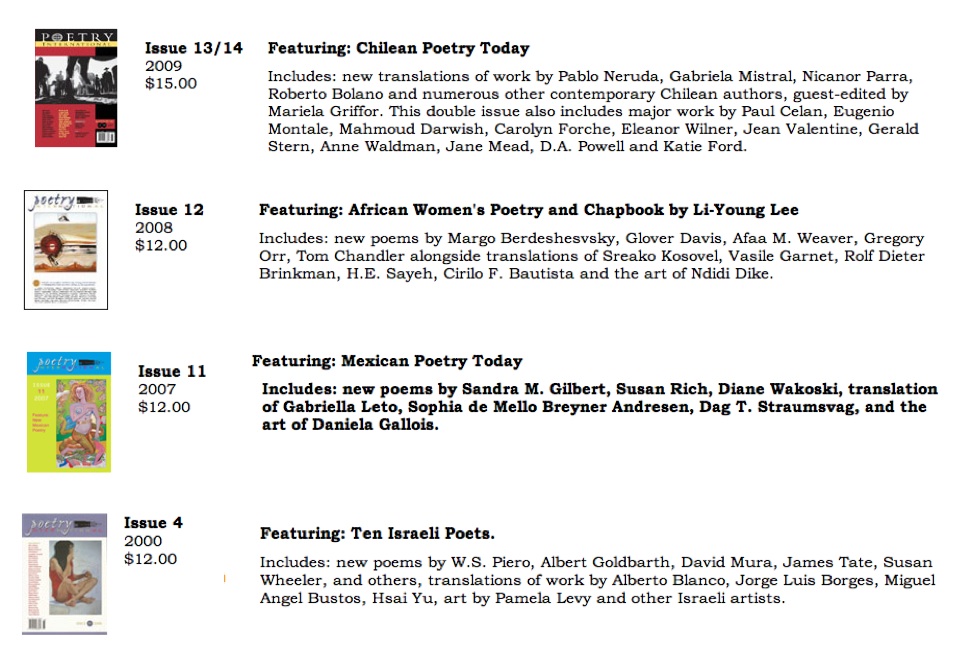 For more information on POETRY INTERNATIONAL go here. |
  |
TUESDAY | April 15,
2014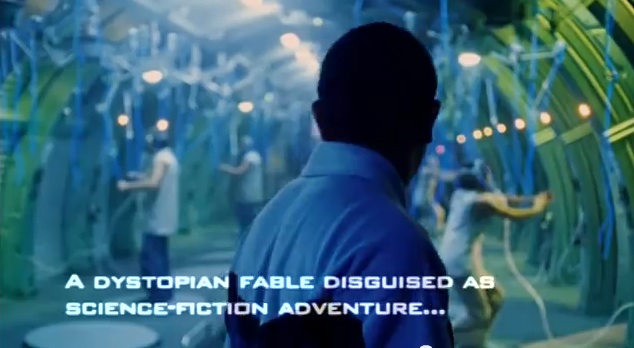 Sleep Dealer + reading, RITA HAYWORTH chapter of Tex[t]-Mex Imagination Challenge Numero Dos due in class today. |
THURSDAY
| April 17, 2014 Sleep Dealer + Seductive Hallucination Gallery One in Tex[t]-Mex, along with a careful perusal of the Frida Kahlo chapter, also--especially the passages dealing with XICANOSMOSIS!!!! A gaggle of Xicanosmosis passages are gathered here. |
| |
||
  |
TUESDAY | April 22, 2014 As we hit the final stretch, you walk into the classroom happy, happy as you are prepared, having read the first 165 pages of Lidia Yuknavitch's DORA: A HEADCASE. In the event of an in-class quiz, you laugh headstrong, secure in the knowledge that you are prepared. But remember, you have to be strong reading this book--it is over the top adult and obscene (obscenely funny and tragic, also, and at the same time). Preparation for reading this book ideally would be to have read the Case History of Dora penned by Freud. Short of that peek here and here for the backstory and the novel will make a lot more sense. Curious? Read the whole thing by buying this book. 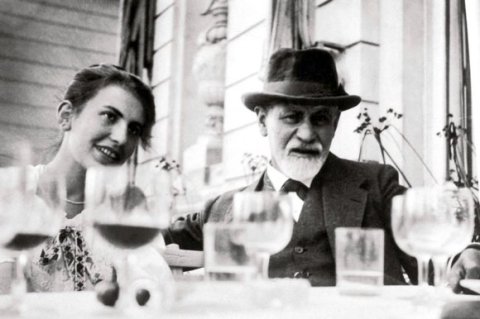 |
THURSDAY | April 24, 2014 Walk into class having finished Yuknavitch's DORA: A HEADCASE!  |
   |
TUESDAY | April 29, 2014 Surprise in-class concert with the Satanic Puppeteer Orchestra. Attendance today will be taken in a unique way. Your preparation for the class entails you to probe, spelunk, read, devour, and lose yourself in the web of madness on the Satanic Puppeteer website (faint of heart? do please relax, there's nothing satanic about the Satanic Puppeteer Orchestra, save for its savage, satiric wit!). Walk into class today with an envelope decorated in such a way that it shows you have a general understanding of what the SPO project is all about: is it a music band? is it performance art? is it madness? In that envelope put what you think SPO deserves for coming out and hanging with the class: $1 is fine! $4 is much too much! Be sure the envelope is sealed and toss it into the proper bag so that we can easily take attendance! Here's a taste of what you can expect in class today: Hang with the brains behind the Satanic Puppeteer Orchestra, SDSU Alum Michael Buchmiller after class if you have time at the BLIND LADY ALE HOUSE for a reception! No worries, it's an all-ages restaurant. |
THURSDAY | May 1, 2014 Read AURA, by Carlos Fuentes--plus read as much of you can of the LUPE VELEZ chapter from Tex[t]-Mex 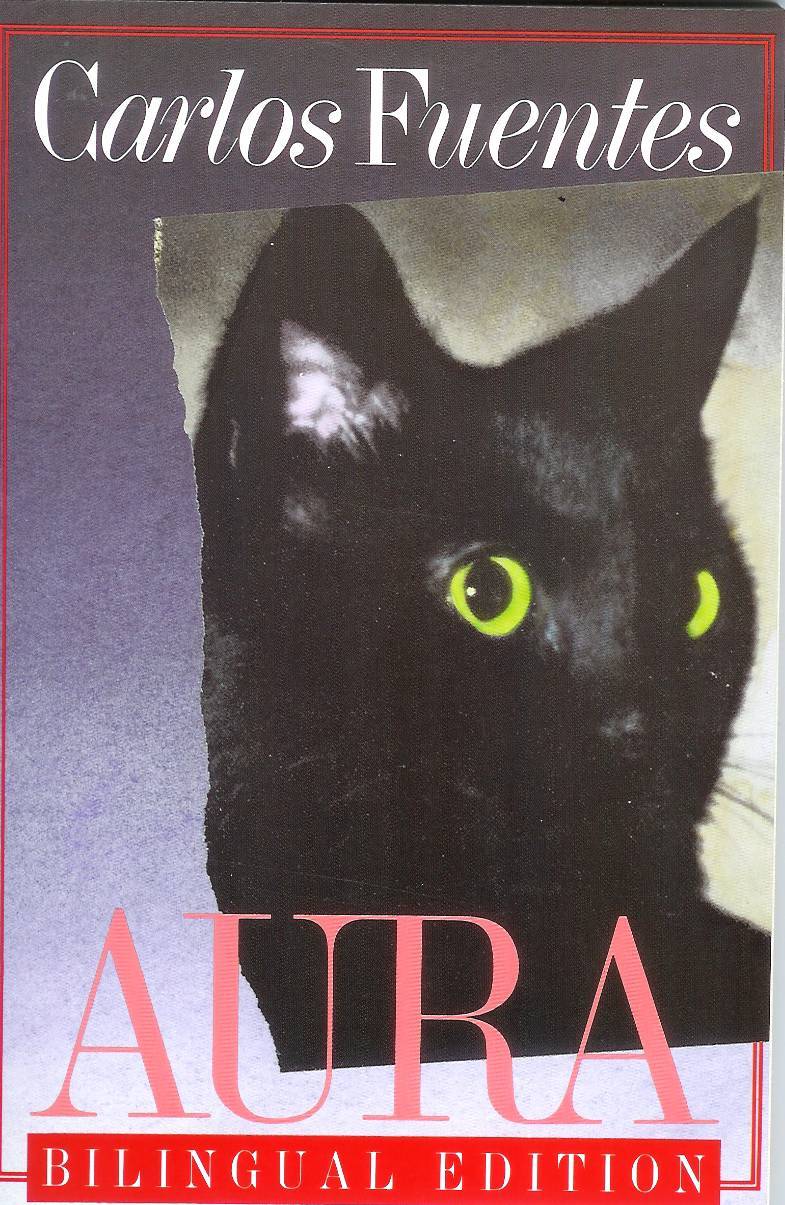 |
| |
||
  |
TUESDAY | May 6,
2014 Finish up of AURA discussion and final review for the final in-class imagination challenge, aka, the final exam...  |
THURSDAY | May 8, 2014 FINAL In-CLASS IMAGINATION CHALLENGE, aka "The Final Exam"!  |